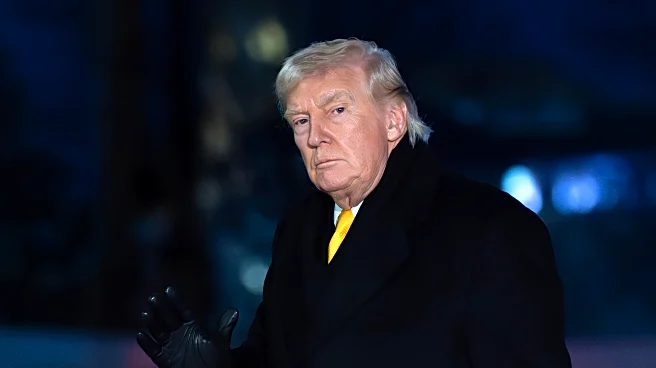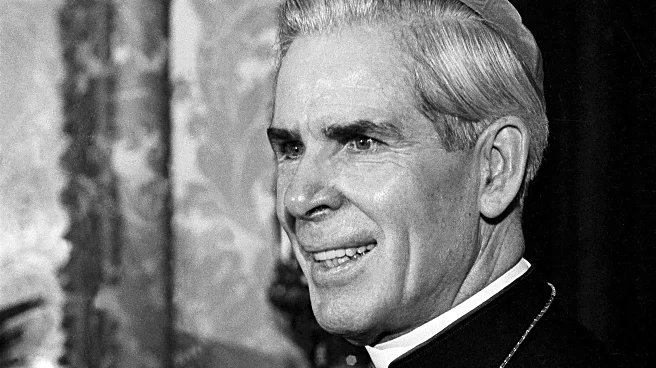What is the story about?
What's Happening?
The Trump administration has decided to delay the next round of bilateral trade agreement negotiations with India, originally scheduled for August 25-29. This decision follows the imposition of steep tariffs by the U.S. on Indian exports, including a 25% duty on various goods and an additional 25% levy as a penalty for India's purchase of Russian crude oil and defense equipment. The U.S. is seeking greater market access in India's agriculture and dairy sectors, demanding reduced tariffs on products like corn, soybeans, apples, almonds, and ethanol, as well as increased access for U.S. dairy products. However, Indian Prime Minister Narendra Modi has firmly opposed these demands, emphasizing the protection of India's farmers and dairy sector.
Why It's Important?
The delay in trade talks highlights the ongoing tensions between the U.S. and India over trade policies, particularly in sensitive sectors like agriculture and dairy. The U.S. tariffs pose a significant challenge to Indian exporters, potentially affecting bilateral trade, which has been growing. The U.S. remains India's largest trading partner, with substantial trade volumes recorded in recent months. The outcome of these negotiations could have significant implications for both countries' economies, affecting industries reliant on exports and imports. The situation underscores the complexities of international trade negotiations, where domestic interests and international relations must be balanced.
What's Next?
The postponement of the trade talks leaves uncertainty about the future of U.S.-India trade relations. Both countries may need to engage in further diplomatic discussions to resolve the deadlock. The U.S. may continue to press for concessions in agriculture and dairy, while India is likely to maintain its stance on protecting its domestic sectors. The resolution of these issues will be crucial for the continuation of positive trade relations. Stakeholders in both countries, including businesses and policymakers, will be closely monitoring developments to assess the impact on trade and economic growth.
Beyond the Headlines
The trade dispute also reflects broader geopolitical dynamics, as India navigates its relationships with major powers like the U.S. and Russia. The imposition of tariffs as a penalty for India's defense purchases from Russia highlights the intersection of trade and foreign policy. Additionally, the emphasis on protecting domestic agriculture and dairy sectors points to the cultural and economic significance of these industries in India, where a large portion of the population relies on farming for their livelihood.

















